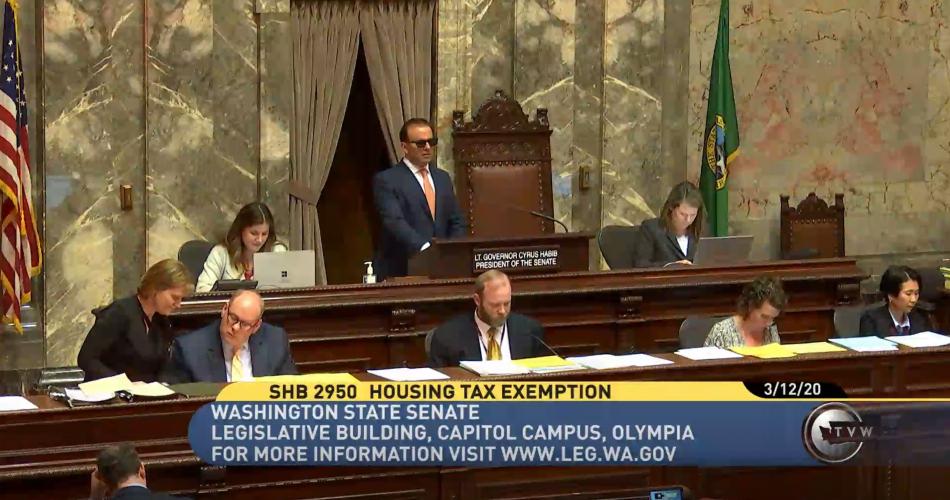Reading time: 6 minutes
Put simply, it is very difficult to “shelter in place” if you don’t have shelter in the first place.
The COVID-19 crisis has shone an even brighter light on the inequity and burden that the housing supply shortage takes on families and individuals. As entire industries are upended overnight, Americans – many of whom were already struggling to find affordable housing – are staring down a grim new reality unless bold action is taken.
As it relates to housing, the immediate response has come from local governments across the country that have stepped into help renters and owners avoid eviction and utility shutoffs. Many are now scrambling to better serve a homeless population that is too often forgotten. But as the crisis continues to evolve, federal interventions to help millions of Americans stayed housed must be a priority. Indeed, the Federal Housing Finance Agency has already taken steps to prevent foreclosures and evictions for at least 60 days for residential properties with Fannie Mae and Freddie Mac mortgages, and the Federal Housing Administration has taken similar action for properties with FHA-insured mortgages. This is a good first step.
Though the first two stimulus packages have not including any special provisions for housing, Up for Growth Action is joining housing advocates, trade groups, and other organizations to make loud and clear that Congress cannot ignore the looming crisis when it comes to ensuring that people can indeed stay in their homes.
Up for Growth Action believes that COVID-19-related housing assistance should focus on two policy priorities: 1) protecting renters, owners, and vulnerable populations as they face housing uncertainty; and 2) ensure that the housing and construction industry can continue to produce much-needed housing – and jobs.
As millions of Americans face health challenges and job loss, paying rents and mortgages will become increasingly difficult. Millions of Americans were already living paycheck-to-paycheck, often a broken water heater or new transmission away from missing a rent payment. The sudden and immediate loss of income will only enhance this insecurity.
To help these Americans, Unemployment Insurance payments should be significantly expanded to help cover the costs of rent or mortgage payments. Temporary eviction moratoriums are critical, but financial assistance, whether directly related to housing or more general in nature, is necessary in the near- and long-term to keep people housed. Direct financial and resource support for housing the homeless or near-homeless is an imperative, both for the health and safety of the housing insecure and as a needed measure to prevent the spread of COVID-19. In addition, homeowners and rental property owners will need mortgage forbearance and financial support to buffer against the downstream losses associated with temporary measures to keep people in their homes.
It is also critical that housing production continues so we don’t exacerbate an already serious housing supply crisis. Exempting construction workers from shelter in place orders – an action that California has already taken – will help keep millions employed during this time of crisis and help ensure that the already fragile housing ecosystem is not brought to a halt. Special precautions must be made to safeguard these vital workers.
Access to safe, affordable housing is more important than ever. Federal, state, and local governments must enact sweeping innovative solutions to ensure that millions of families and individuals can stay in their homes as the health and economic consequences of the COVID-19 crisis continue. The longstanding housing issues that we’ve highlighted and on which we’ve advocated since our organization’s founding are still very much present, and we look forward to the day when we can return to primarily focusing on fixing the structural issues with our housing ecosystem.
In the meantime, let’s work together to ensure that what’s now predominantly a public health and economic crisis does not severely worsen an existing housing crisis.
You can read more about Up for Growth Action’s priorities and response to COVID-19 on a newly created page on our website. You can also find the latest policy proposals from Up for Growth Action, our allies, Members of Congress, and the Administration, as well as coverage on housing as it related to COVID-19. We hope this is a helpful resource for you.
